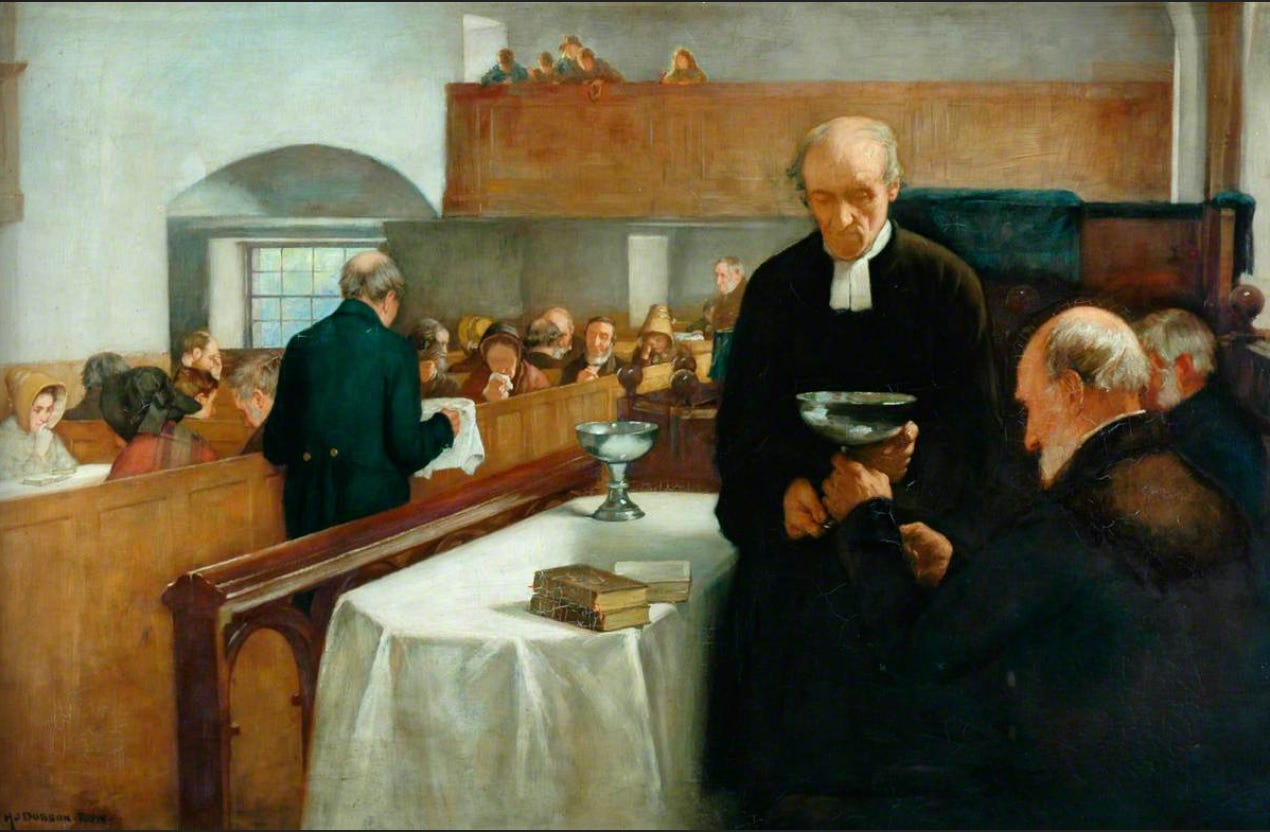The Lord's Supper: communing with Christ & His people in worship
The Lord's Supper is not just a snack after a lecture, but builds on and is supported by the other elements of the worship service.
Reformed worship is an integrated whole with each of the elements of the worship service building upon one another. God calls His people to worship, and His people respond to that call. Reformed worship is a response to the truth of Who God is and what He has done in creation and redemption.
This is all the more the case when we come to the Lord’s Table. Our Westminster Standards remind us that all who come to the Lord’s Table should prepare themselves to meet with Christ there by faith and commune with Him and His people at the table:
What is required to the worthy receiving of the Lord’s Supper?
It is required of them that would worthily partake of the Lord’s Supper, that they examine themselves, of their knowledge to discern the Lord’s body, of their faith to feed upon Him, of their repentance, love, and new obedience; lest, coming unworthily, they eat and drink judgment to themselves. (Westminster Shorter Catechism No. 97)
So there is an individual aspect to preparing to come to the L…



